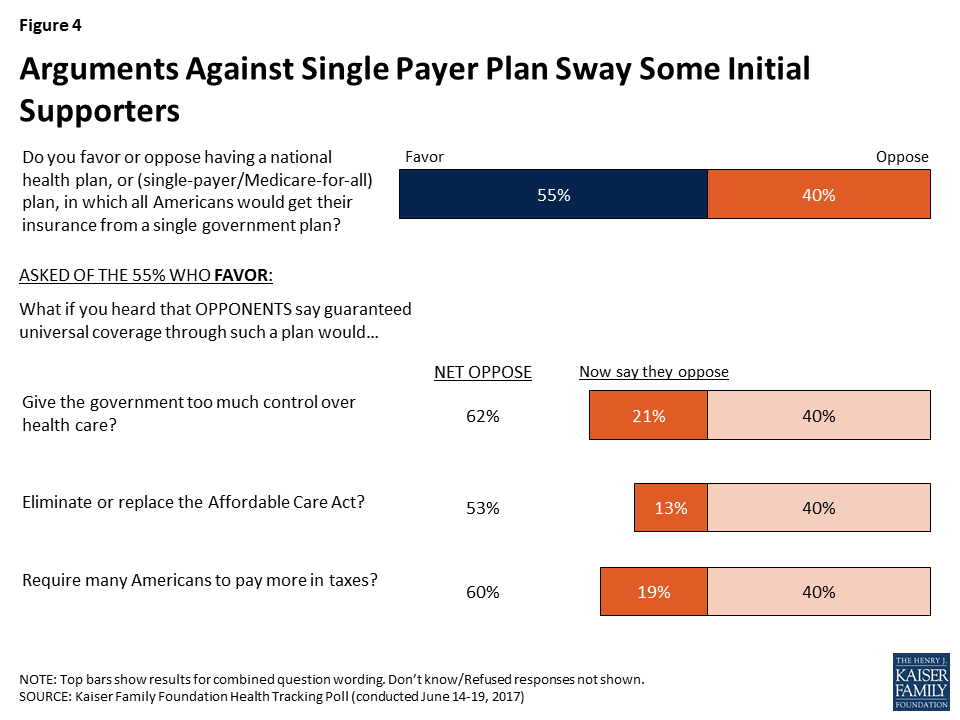What Liberals Won’t Tell You About Pre-Existing Conditions
The Kaiser Family Foundation released its monthly tracking survey on Wednesday, with results designed to give liberals a big boost: “The majority of people in a new poll say it’s important to them that Obamacare’s protections for people with pre-existing conditions aren’t endangered.”
Unfortunately, that doesn’t tell the entire story. Voters do like the idea of “protections for people with pre-existing conditions” in the abstract. But when pressed, they express significant qualms about the very real trade-offs.
Moreover, large majorities of voters said it was “very important” to retain provisions “prohibiting health insurance companies from denying coverage because of a person’s medical history” (76 percent) and “charging sick people more” (72 percent). Smaller but still sizable majorities of Republicans (58 percent in both cases) supported each issue.
What the Poll Did Not Ask
The poll looked at views about pre-existing conditions in a vacuum and did not attempt to examine trade-offs of the policy, or whether individuals valued one policy over another. For instance, among Republicans, repealing Obamacare proved more popular than preserving the pre-existing condition provisions.
Nine percent of Republicans considered Obamacare repeal the “single most important factor” in their vote, with another 49 percent calling it a “very important factor.” Compared to that combined 58 percent support, pre-existing condition provisions won 51 percent support, with 8 percent calling them the most important factor, and 43 percent calling them very important.
Kaiser also did not ask any questions about the trade-offs associated with the pre-existing condition provisions, and whether those trade-offs would soften voters’ support for them, even though it has done so on other issues in the past. Last July, a Kaiser poll demonstrated how telling people who initially support a single-payer system that such a change could lead to higher taxes or greater government control caused support for single-payer to drop by roughly 20 percentage points:

Thankfully, last year the Cato Institute conducted a survey that did examine the trade-offs of the pre-existing condition provisions, with revealing results:
- Initially, voters approved of “requir[ing] insurance companies [to] cover anyone who applies for health insurance, including those who have a pre-existing medical condition” by a whopping 77-20 percent margin.
- But when asked if they would approve of such a requirement “if it caused the cost of your health insurance to go up,” voters disapproved of this provision by a 35-60 percent margin. If the pre-existing condition provisions raised premiums, support declined by 42 percentage points, and opposition rose by 40 percentage points.
- Voters likewise initially approved of the Obamacare provision “that prohibits health insurance companies from charging some customers higher premiums based on pre-existing conditions” by a 63-33 percent margin.
- Here again, however, if charging all individuals the same rates meant “the cost of your health insurance would go up,” support dropped by 24 points (from 63 percent to 39 percent), while opposition rose by 22 points (from 33 percent to 55 percent). Opposition also rose dramatically if voters thought the pre-existing condition provisions would cause taxes to rise, or the quality of care provided to decrease.
Is This Merely Biased Polling?
I asked Kaiser why they included these types of “malleability” questions regarding single-payer but not pre-existing conditions. Ashley Kirzinger, a Kaiser researcher who worked on the poll, said they were gauging general public responses on the issue. She said Kaiser might study the trade-offs associated with the pre-existing condition policy in the future, but didn’t definitively commit to doing so.
That said, a conservative might highlight Kaiser’s liberal ideology as another possible explanation why they might not ask voters whether they would support Obamacare’s pre-existing condition provisions despite costly trade-offs. For instance, the organization has consistently used the phrase “Affordable Care Act” rather than “Obamacare” to describe the 2010 health care law—and as even a supporter of the law like Jimmy Kimmel found out, the two terms prompt sharply different reactions.
Here’s the Bottom Line
Conservatives have a compelling case to make on the harm that Obamacare’s pre-existing condition provisions have wrought—if they have the courage to make it. Thankfully, politicians like Sen. Ted Cruz (R-TX) are doing so, and in the unlikeliest of places: a pickup charity basketball game with Jimmy Kimmel.
Conservatives do have other alternatives to Obamacare’s premium-raising requirements that address individuals with pre-existing conditions. For instance, they could revive and reform high-risk pools in place prior to the law. The Heritage Foundation last year proposed regulatory changes to provide continuity of coverage for people with pre-existing conditions. While the Heritage proposal has its flaws, it would likely work better than Obamacare currently does, thereby lowering premiums in the process.
But to advance these other proposals, conservatives must first make the argument that the status quo on pre-existing conditions amounts to a tax increase on millions of Americans who buy individual health insurance. They have the facts on their side—and Kaiser’s incomplete survey notwithstanding, those facts may bring the American people to their side as well.
This post was originally published at The Federalist.